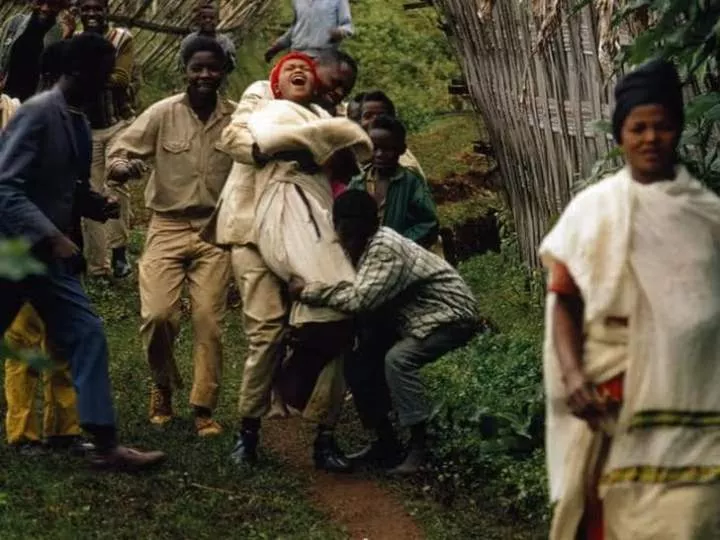![What to know about the bride kidnapping tradition [Medium] What to know about the bride kidnapping tradition [Medium]](https://static.netnaija.com/i/q2NAeEdQNzJ.webp)
Bride kidnapping, also known as marriage by abduction or marriage by capture, involves a man abducting the woman he wishes to marry.
This practice might sound bizarre, but it is still happening today in many parts of the world.
The woman is often taken unexpectedly and sometimes forced into marriage without her consent. This practice can be found in various cultures across the globe, and it has different names and details depending on where it happens.
Where does it occur?
Bride kidnapping is most commonly reported in parts of Central Asia, the Caucasus region, and some countries in Africa. Countries like Kyrgyzstan, Kazakhstan, Uzbekistan, and parts of Ethiopia, among others, have histories of this tradition.
Reasons behind the practice
1. Cultural traditions
In many cultures, bride kidnapping is seen as a tradition that has been passed down through generations.

It is sometimes considered a symbolic act, part of a larger ritual of courtship, although the implications for the bride can be very real and serious.
2. Economic factors
Economically, bride kidnapping might occur as a way to avoid paying the bride price or dowry-a sum of money or quantity of goods given to the bride's family. By kidnapping a bride, the groom's family can evade these costs.
3. Social pressures
Social norms and pressures can also play a role in the continuation of this practice. In some communities, there is a stigma attached to women who spend time alone with a man, leading some families to accept a forced marriage rather than face social shame.
Cultural significance
Despite its harsh reality, in some cultures, bride kidnapping is wrapped in romantic, historical narratives. It's portrayed in folk stories and songs as a dramatic form of courtship, where a man proves his love and bravery by risking everything for the woman he loves. However, the reality for the kidnapped woman can be very different and often involves fear, confusion, and violation of rights.
The impact on women
1. Violation of rights
Bride kidnapping is a direct violation of women's rights. Women who are kidnapped often face forced marriage without their consent.

This can lead to a lifetime of suffering, including domestic abuse, isolation, and depression.
2. Legal and psychological effects
In countries where bride kidnapping occurs, the legal system can be unsupportive, with laws that are either inadequate or not enforced. Psychologically, kidnapped brides may experience acute stress, trauma, and a sense of helplessness.
Steps being taken to address the issue
1. Legal reforms
In some regions, there is growing awareness and legal reform aimed at stopping bride kidnapping. Countries like Kyrgyzstan have made efforts to strengthen laws against abducting brides. However, the enforcement of these laws is still a significant challenge.
2. Education and advocacy
Education plays a role in changing attitudes towards bride kidnapping. Non-governmental organisations (NGOs) and local communities are working to educate people about the harmful impacts of this practice on women and society. Through education, younger generations are learning about the importance of women's rights and consensual marriage.
3. Community interventions
In some cultures, community leaders are stepping up to speak against the practice, advocating for cultural change from within. These leaders are shifting the perception of bride kidnapping from a traditional practice to a human rights violation.
Bride kidnapping is a complex issue that sits at the intersection of tradition, economics, and human rights.

While rooted deeply in certain cultures, global awareness and local action are key to protecting vulnerable women and reshaping cultural norms towards more humane practices.
Through continued legal reforms, education, and community advocacy, there is hope for ending bride kidnapping and supporting the rights of all women to choose if, when, and whom they marry.
















Comments